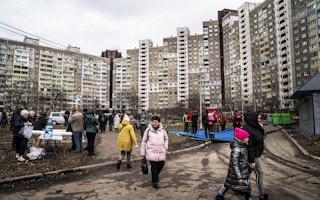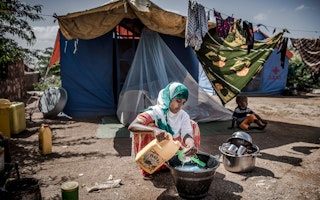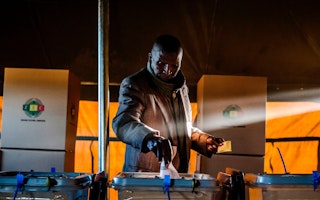Q&A: How Does Your Government Score on Rights?

Data can motivate change. This is the mantra of the Human Rights Measurement Initiative (HRMI), a nonprofit research group that has launched Rights Tracker to measure the rights performance of governments. Open Society’s Borislav Petranov spoke to Anne-Marie Brook of HRMI about this initiative.
Tell us more about the Rights Tracker. Why do you think a tool like this is needed? How do you hope people will use it?
Our vision is a world where countries are competing to see who can treat people the best. Leaders and other decision-makers already have lots of statistics on things like GDP growth. In producing the Rights Tracker we want to make sure they also have robust data on how countries are treating people.
Advocates, journalists, government officials, and others can all think of the Rights Tracker as a set of independent scorecards on how well countries are doing. My hope is that they will take the opportunity to re-think the way they have always done things and consider how data can lead to new approaches to achieving their goals.
For example, human rights advocates and journalists often do incredible work documenting specific human rights violations. The stories they tell can be very powerful, but they could be made even more powerful by pairing them with data. For instance, they might want to highlight that a particular story is just one example of a much more systemic pattern of human rights violations.
All of us who have been to school know that receiving a report card can be both nerve-wracking and exciting. What have I done well on? Where could I do better that I might not have already thought of? We want our data to be helpful tools for improvement.
In creating a tool like this, what is your greatest ambition? And what is your largest concern?
Our greatest ambition is a world where all people are able to live their lives to their fullest potential, and HRMI is no longer needed!
In the more foreseeable future, we want to measure all rights set out in international human rights law, for all countries in the world, and for the data to be actively used every day, in every country, to help bring about improvements in the lives of people.
My largest concern is for the safety of human rights defenders worldwide, many of whom are contributing their knowledge to our dataset via our annual expert survey. I have incredible admiration and respect for these brave people who often put their own safety, and that of their families, at risk in order to stand up for what is right. At HRMI we take data security extremely seriously and do all we can to magnify the voices of these people, in spaces they may not otherwise be able to reach while protecting their anonymity.
A lot of the concerns about indices and rankings have focused on perceived difficulties in applying methodologies that will produce reliable results: how is HRMI handling this challenge?
It is very important to us that the country scores we produce are equally well accepted by the academic measurement community (who peer-review our methodologies) and human rights practitioners, who need to see that our country scores accurately represent what they see happening on the ground. So far, we are getting the thumbs up from both groups.
To achieve this, we use co-design techniques—particularly for the ongoing development of our expert survey and the Rights Tracker. For example, every year we run user testing sessions via Zoom, where we ask a user to speak out loud to one of the HRMI team as they interact with our tools. It is incredible how much we learn from this “fly on the wall” experience. Everyone who participates in one of these sessions is helping to co-design these key products.
Our economic and social rights methodology is equally innovative. The SERF (Social and Economic Rights Fulfillment) index methodology we use—developed by HRMI co-founder Susan Randolph, and her colleagues—has won two important prizes, including the prestigious Grawemeyer Award for Ideas for Improving World Order.
Looking ahead, how do you see this work developing?
We have two key priorities looking ahead:
- To achieve global coverage with our expert survey. We already have a sprinkling of countries across every region of the world, and we are now filling out the gaps region by region, as funding is secured. All countries in the Pacific region are already included, and our current focus is on completing coverage across Asia. Next year we will be adding India and China, at which point we will be covering over half the world’s population. We already have global coverage of the five economic and social rights we measure.
- To build the momentum of HRMI data being used for impact. We work hard to equip civil society and journalists with accessible data tools. We also expect to see significant data uptake by the private sector. Our data can feed into ESG (Environmental, Social, and Governance) investment analysis, geopolitical advisory services, and international policy consulting. Watch this space!
Human Rights Measurement Initiative is a grantee of the Open Society Foundations.


